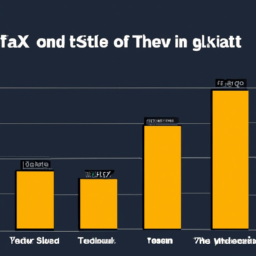,"For 2022, the net investment income tax rate of 3.8% is imposed on the lesser of your net investment income or the excess of your modified AGI..."
The 3.8% net investment income tax is imposed on the lesser of your net investment income or the excess of your modified adjusted gross income (AGI) over the set income thresholds. This tax was created under the Affordable Care Act (ACA) of 2010 and affects taxpayers with relatively high incomes. Net investment income includes income from capital gains, interest, dividends, rental and royalty income, and income from passive activities.
For 2022, the net investment income tax rate of 3.8% is imposed on the lesser of your net investment income or the excess of your modified AGI over the set income thresholds. If you are married filing jointly, the threshold is $250,000; if you are filing singly, the threshold is $200,000. For married individuals filing separately, the threshold is $125,000. If you have children under 18, the first $1,150 of their investment income is tax-free.
Net investment income is calculated after subtracting deductions for investment, including expenses for managing and maintaining your investment. It is important to note that net investment income does not include income from wages, self-employment, Social Security benefits, or retirement plan distributions. Also, it does not include any capital gains that are excluded from gross income due to certain exclusions (such as the exclusion for capital gains on the sale of a principal residence).
For example, if your modified AGI is $220,000 and your net investment income is $50,000, then the net investment income tax would be imposed on the lesser of the two amounts, or $20,000. This would result in a tax of $760. If you are married filing jointly, then the net investment income tax would be imposed on $30,000, resulting in a tax of $1,140.
It is important to understand the various deductions and credits available to taxpayers to reduce their net investment income tax. For instance, the child tax credit may be available to reduce the net investment income tax if the taxpayer has a qualifying child. Other deductions and credits may be available depending on the taxpayer’s individual situation.
It is also important to understand the difference between taxable and non-taxable investment income. Taxable investment income includes income from capital gains, dividends, rental and royalty income, and income from passive activities. Non-taxable investment income includes income from interest, wages, and retirement plan distributions.
It is important to understand the rules and regulations surrounding the net investment income tax. For example, the tax must be reported on Form 8960 and is due when the taxpayer files their tax return. Additionally, the taxes must be paid in full by the due date of the return.
Taxpayers should also be aware of the alternative minimum tax (AMT) and how it affects the net investment income tax. The AMT is an additional tax imposed on taxpayers with relatively high incomes, and can reduce the amount of the net investment income tax that is due. Taxpayers should consult with a tax professional if they have any questions about the AMT and its impact on their net investment income tax.
Additionally, taxpayers should be aware of the various tax-advantaged investment that may be available to them. These investment can help taxpayers reduce their tax liability and increase their net investment income. Examples of tax-advantaged investment include Roth IRAs, traditional IRAs, and 401(k)s.
Finally, taxpayers should be aware of the potential penalties for failing to pay the net investment income tax. If the tax is not paid by the due date of the return, then the taxpayer may be subject to interest and penalties. The amount of the penalty varies depending on the amount of the tax due, and taxpayers should consult with a tax professional for more information.
Understanding the net investment income tax, and how it affects your taxes, is an important part of any taxpayer’s financial planning. It is important to be aware of the various deductions, credits, and tax-advantaged investment that may be available to you, as well as the potential penalties for not paying the tax on time.
Taxpayers should consult with a financial advisor or tax professional to ensure that they are taking full advantage of all available deductions, credits, and tax-advantaged investment. Additionally, taxpayers should be aware of the various rules and regulations surrounding the net investment income tax and understand the potential penalties for not paying the tax on time.
The net investment income tax can have a significant impact on a taxpayer’s overall financial planning. It is important to be aware of the various rules and regulations surrounding the tax and to understand the potential penalties for not paying the tax on time. Taxpayers should consult with a financial advisor or tax professional to ensure that they are taking full advantage of all available deductions and credits.
The net investment income tax is an important part of any taxpayer’s financial planning. It is important to understand the various rules and regulations surrounding the tax, including the income thresholds and deductions available to taxpayers. Additionally, taxpayers should be aware of the potential penalties for not paying the tax on time.
